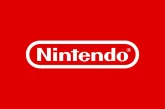When you think of Titus Interactive, what’s the first thing that springs to mind? Is it their awful game releases? Is it that they somehow found capital to acquire two major publishers back in the 90s? Is it that despite owning these two giant publishers, Titus still went under in during the early 2000s? Or is it that you have never heard of the company?
For the most part, Titus Interactive as a developer in its own right is pretty much entirely forgotten and for good reason. When you look at their output, quality doesn’t seem to be the thing they were mainly known for. In fact, as the 90s rolled on, quality drifted further down the list of what Titus became known for. Today, the one game everyone knows by Titus is Superman 64 and that’s not a compliment. It’s often cited to be one of the worst games of all time and the chances are, even knowing about this game, most still won’t know who Titus were.
What everyone will remember are two publishers that were I would have thought, much larger than Titus Interactive. Yet somehow, Titus still managed to cough up the money to buy them both out. Unless Titus took on huge debts to fund the expansions which would probably be most likely and would also be the most probable reason behind their ultimate demise. Interplay Entertainment and Virgin Interactive both had vastly superior releases under their belts both in terms of critical acclaim and their sales.
Virgin Interactive owned Westwood Studios, the developer most known for the Command & Conquer franchise. They also released two the first two games in the Broken Sword series and in Europe were responsible for the publishing of Capcom games during the PS1 era. Still remember the Virgin Interactive eye logo at the start of Resident Evil 2.
Then you have Interplay Entertainment which is just insane that they were able to be purchased by Titus. Virgin Interactive was owned by Virgin Group so wasn’t publicly available to buy shares in. Interplay Entertainment however, was publicly traded so Titus would have had to make a significant offer which the board of directors initially accepted, put to the shareholders whom would also have approved. Well, to be honest, buying Interplay probably would have been easy. The company wasn’t in great financial shape so directors and shareholders would been likely happy to get it off their hands for quick profits. Plot twist.
Saying all this, is it wise buying into a publisher that’s massively struggling, especially when Titus themselves weren’t exactly releasing stellar games themselves? Let’s look at some of the crap Titus were releasing in the second half of the 90s.
We all know Titus totally screwed up development of Superman for the N64, though there’s conflicting information as to why this happened. And it’s all from one side so there’s a good chance it’s not entirely accurate, especially as said person owned Titus. But there’s other games they released that are often forgotten about. One such title is The Blues Brothers 2000, based on the movie of the same name which also everyone forgets about. That’s because both movie and the game are dreadful. Much worse than the game Titus did based on the original Blues Brothers movie that came out on Game Boy, NES and various micro computers. Again, unlike the movie, nobody really knows this game existed. That’s probably because it’s crap and by a crap developer. Other notable crap releases include Rival Realms for the PC… I’ve never heard of this one but reviews were so bad, it’s probably not worth looking up footage of. Titus also produced two games based on two highly successful TV series’ of the time. Anyone remember Hercules and Xena? Yeah, bet you don’t remember the N64 games though.
Unlike in Japan, the developers in the West often seemed to struggle more and more as the 1990s went on, especially with the launch of the 3D era. Not all developers as we know, but certainly a fair number did.
You know, I think I’m seeing the problem Titus had with why they went bankrupt. Although, a debt of €33 million isn’t as much as one would have assumed. The interesting part of all of this is that Interplay Entertainment has somehow come back out of bankruptcy, although they haven’t really done much in recent years. But hey, they outlived a crap developer that bought them out and then went under six years later.




